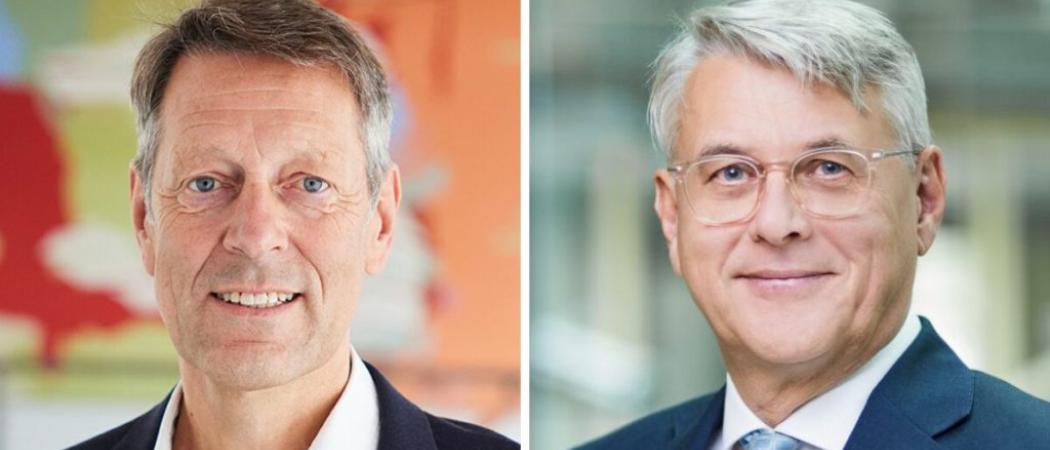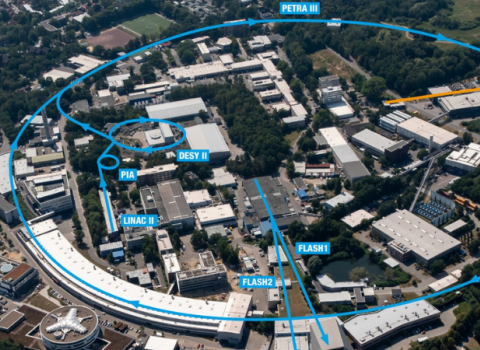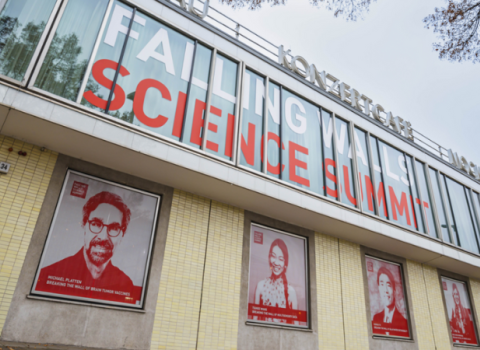Two leading figures in German research see it as stuck in a ‘deep slump’. But more money is not necessarily the answer

Georg Schütte, head of the Volkswagen Foundation; and Volker Meyer-Guckel, secretary general of the think tank Stifterverband
Science|Business - Table.Media partnershipScience|Business has partnered with Table.Media, a leading source of news about higher education and research in Germany. Each week, we are publishing one of each other’s stories to give readers an even broader range of insight into R&D policy across Europe. |
Shortly before the summer break, two prominent representatives of the German academic community, Volker Meyer-Guckel and Georg Schütte, called for radical change in the country’s university and academic system in a new report.
In it, they argue that the German science system is stuck in a "deep slump" and call for, among other things, more courage to take risks, and a changed logic around competition and impact.
Refreshingly, the paper largely avoids calling for more financial support. This is partly why Meyer-Guckel, secretary general of the think tank Stifterverband, and Schütte, head of the Volkswagen Foundation, are now going public with their vision for a science system 2.0.
A spokeswoman for the Stifterverband told Table.Briefings, "the time window for the debate was chosen due to the foreseeable cuts in public budgets, the preparations of the parties for the next legislative period and the work of the German Council of Science and Humanities on the structural development of the science system".
In their paper, the Stifterverband and Volkswagen Foundation set out six core demands, which they describe as pilot initiatives and on which they want an intensive dialogue:
- Strengthen strategic capability: promote governance models and give universities more options to chart a different course
- Dare to change perspectives: supplement the current competition for funding with a “logic of impact” that strengthens the focus on national research and science policy goals
- Realise permeability: create new framework conditions so that bright minds from different sectors of science, business and also administration can collaborate - without bureaucratic hurdles
- Increase efficiency: universities should pool resources along their outstanding research and innovation profiles, for example in future-oriented alliances for teaching and transfer; enable new financing models in public-private partnerships; security and defence research as drivers of technological development must no longer be taboos
- Promote agility and take risks: far-reaching experimentation clauses in state and federal laws to enable real-world laboratories and strategic change alliances for bold development paths
- A new quality of debate in politics: before budget negotiations between the federal and state governments, structured debates and agreements on future-oriented and internationally competitive development goals for German science are necessary - including the perspectives of science and industry and with a perspective beyond legislative periods.
Little evidence base
However, there was no structured or evidence-based analysis process in the run-up to publication. The Stifterverband and Volkswagen Foundation state that they "spoke with university leaders from Germany and abroad, science ministers (current and former, across party lines) and business representatives".
In a guest article for the Frankfurter Allgemeine Zeitung, Schütte and Meyer-Guckel refer, among other things, to a ranking by the Swiss university IMD (International Institute for Management and Development) in which Germany has slipped from sixth to 24th place among the most competitive nations within ten years. However, a closer look at the IMD study reveals that Germany still ranks fifth in terms of scientific infrastructure.
Still world leading
When asked by Table.Briefings, Uwe Cantner, chairman of the Commission of Experts for Research and Innovation (EFI) – which compiles lengthy annual reports on the state of the R&D system - said he did not readily agree with the foundations' diagnosis that science is "in a deep slump".
In many areas, German science is still at the forefront internationally - including in the field of artificial intelligence. "The fact that - as criticised by Schütte and Meyer-Guckel - only a few German universities have made it into the top 100 international rankings, belies the fact that the vast majority of German universities have (slightly) improved in the rankings," says Cantner.
The fact that AI is not being well-used and developed in the wider economy is not so much due to the scientific system. German AI research is often a world leader – instead, the biggest hurdles are framework conditions in industry, and technology transfer problems.
Overall, Cantner criticises the paper for lacking an evidence base for a real SWOT analysis.
Nevertheless, the impetus for debate on many points is important, he thinks. “In addition to real world laboratories, the paper also refers to public-private partnerships, the upgrading of defence research, the need for coordination of federal and state activities and calls for more agility and permeability."
Mountain of challenges
The description of German science as in a "deep slump" also goes too far for the German Science and Humanities Council, which advises the federal government.
However, it is true "that we are facing a mountain of challenges and that not everyone in politics and science has yet realized how much and how quickly the world is changing and will continue to change," says Rainer Lange, head of the Council’s research department.
Germany needs a system that can react more flexibly and quickly to new requirements than before. Lange believes the most important point is one that appears to be only mentioned in passing in the paper, namely the call to shift the debate from financial policy issues back to strategic science issues.
In the Federal Ministry of Education and Research (BMBF), the reaction to the paper is rather restrained. "The proposals of the Stifterverband and the Volkswagen Foundation are now being evaluated. In addition to the BMBF, the federal states, industry, investors and various ministries in particular are being addressed.”
However, Meyer-Guckel and Schütte view is not going unchallenged. The BMBF appreciates the quality of German science, which is highly regarded internationally and in demand as a cooperation partner, a ministry spokesperson told Table.Briefings.
Conservatives take note
The foundation is right to initiate a fundamental discussion about the science system, says Thomas Jarzombek, research policy spokesperson for the opposition Christian Democratic Union. A similar debate is taking place within the party.
"From our point of view, the three central questions are: how can we strengthen basic research, how can we give researchers more freedom again and how can we make entrepreneurship the third mission?" These are also the three central questions for the CDU future government programme. The paper provides important impetus here.
Meyer-Guckel told Table.Briefings he is "looking forward to the different contributions and the discussion on the paper, which could be brought together at the next summit for research and innovation".
In his view, the debate on “impact logic” should be prioritised. The country’s Excellence Initiative, for example, which awards special funding to leading universities and research clusters, currently rewards bottom-up applications from scientists, rather than thinking about a complementary national system.
He said the key question could be: what does your concept do for the science system as a whole?






 A unique international forum for public research organisations and companies to connect their external engagement with strategic interests around their R&D system.
A unique international forum for public research organisations and companies to connect their external engagement with strategic interests around their R&D system.